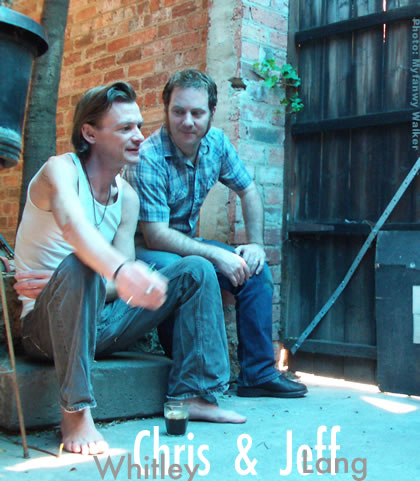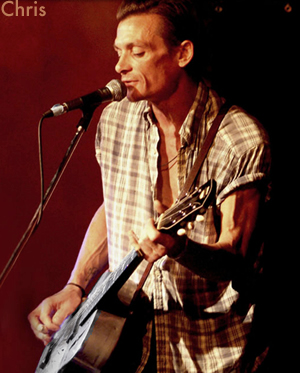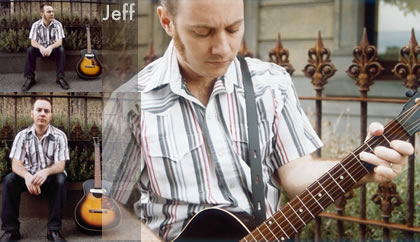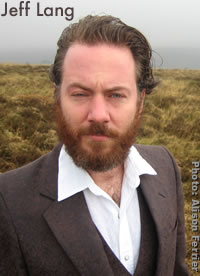
DISLOCATION BLUES • Chris Whitley & Jeff Lang
It's Easter 2005 and the performance of East Texas bluesman Chris Whitley onstage at Australia's Byron Bay Blues and Roots Festival is eerie, erratic, somehow foreboding. Whitley is a wraith like figure, fragile, cradling his beloved National Steel, alone on a huge stage, his hunched form shrouded in a cloud of cigarette smoke. His set passes and the small crowd disperses. Soon the disturbed feeling fades in the blur of dozens of other acts and the festival atmosphere.
Eight or so months later Chris Whitley is dead. A victim of lung cancer at age 45, the man who liked to be called "Road Dog" gone the way of so many of his fellow practitioners of the blues. The previous year, having done some shows in the Pacific North West and Alaska with Australian guitar virtuoso Jeff Lang, Whitley had suggested a collaboration, and over three days in April 2005, the two traditionalists came together to produce not only an outstandingly compelling recording, but a fitting memorial to Whitley's singular talents.

Dislocation Blues is the kind of recording that celebrates the essence of the blues, it digs deep into the visceral, gut wrenching outpourings of the likes of Skip James, Son House, Blind Willie Johnson, and the greatest of the white blues players, Bob Dylan. It brings us a wealth of intuitive, inspired and inspirational playing seldom captured in a studio recording. Jeff Lang says that "Chris Whitley's music had everything that an artist should aspire to: transcendence, raw honest beauty, bravery, passion, " and similar praise can confidently be assigned to Lang, that rarest of players who while capable of the most dazzling virtuosity, invariably brings only what's necessary to the party.

Proceedings kick off on Dislocation Blues with the traditional "Stagger Lee," and if for one moment you think you've heard too many takes of this piece, think again. The characteristic shimmering tension of acoustic steel ushers in Whitley's quavering vocal eloquently "talkin' about the bad man" over Lang's amplified acoustic lap steel. The performance is anchored by a brutal bedrock provided by Lang's Australian compatriots Ashley Davies on drums and the precociously talented Grant ("Squire") Cummerford on upright bass. On "Twelve Thousand Miles," one of three Lang compositions, deliciously slippery slide figures dart in and out between Lang's falsetto vocals. "Hear the whisper, do you follow the sound ?" Lang asks, and the ensemble responds with a blistering instrumental passage, as if in anticipation of Lang's declaration that they will "shake the foundation, tear the building down."
Regardless of the quality, emotional depth and impeccable playing on the original material on this recording, it is the two Bob Dylan covers that stand as the highpoints. A swaggering, loping take on the wonderful "When I Paint My Masterpiece,' sees the players cut loose on a joyous romp. Whitley's vocal is breathtakingly soulful and the powerhouse rhythm section is again relentless. In contrast, "Changing Of The Guard" is reverent, even gentle. It is one of those special pieces of music where we hear kindred spirits at the top of their game, inseparable in their understanding and empathy for the song and uncompromising in their respect for the other's emotions, integrity and musicianship.
On the Whitley penned title track, Lang's propulsive banjo drives Whitley's to ask, even plead, again and again "where can the heretic call home?" without resolution. A bonus track on this recording is "Helhound On My Trail." Perhaps Chris Whitley's hellhound has taken him to place where he now knows the answer. • Michael Hansen
 |
listen to a clips |
| return to covers | |
| buy it here or here | |
| jefflang.com.au | |
| chriswhitley.com | |
| puremusic home |